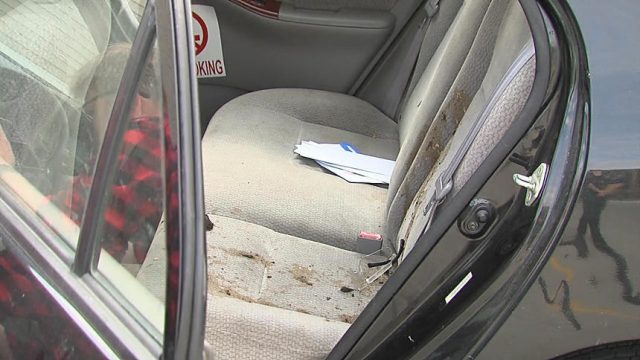How Do We Know Fargo Vandalism Was a Hate Crime?

“In the parking lot of a South Fargo apartment building, a Somali man said his car was broken into and animal feces was spread all over it,” WDAY television reports.
The conclusion political activists are leaping to – from national groups like CAIR (the Council on American-Islamic Relations) to groups regional and local to Fargo – is that this incident was a hate crime.
Prudently, law enforcement officials are withholding judgment as to the motivation pending things like, you know, actual evidence. At this point it’s not at all clear why the perpetrator of this crime did what he (or she) did.
Was it the result of some racial or religious animus? Was it kids pulling a random prank? Was it some inebriated moron engaging in vandalism for laughs?
I don’t know. Neither do you. Yet the proponents of hate crime legislation are pretending they know, for no other reason than because that narrative fits their political agenda.
Which is the problem with hate crime policies in the first place. They have their roots not in a quest for justice but in identity politics. A “hate crime” would elevate punishment for misdeeds based on the identity of the victim, as though crimes against some victims are more serious than crimes against others.
It’s not a wide leap from that position to the conclusion that a crime against a person of a particular identity must, by necessity, be a hate crime.
All of which creates a political mess law enforcement officials and prosecutors simply don’t want to deal with. Supposing for a moment that this act of vandalism was motivated by hate, it’s not clear how a hate crime law would help.
Yesterday on my radio show I interviewed Aaron Birst, executive director of the North Dakota State’s Attorney Association, who explained that hate crime legislation makes getting convictions harder.
“We would rather enforce general laws,” Birst told me (full audio below). He pointed out that to convict someone of the hate crime you have to prove not just that they committed the actual crime in question but also what was motivating them.
He also pointed out that the sort of things hate crime legislation would address – criminal activity like assaults and vandalism – are already illegal. “I don’t think there really is a gap in protection,” he said.
What’s more, there’s no evidence at all that hate crime legislation reduces hate crime. As I pointed out in a column last month:
Left-wing proponents of hate crime legislation suggest that the stiffer penalties for crimes motivated by things like the race or sexual orientation of the victim serve as a deterrent to those crimes, but does that pass the smell test?
There is no conclusive evidence that the increasing number of hate crime laws on the books in states across the nation have reduced hate crime at all. Most states have hate crime legislation today, and yet nationally the FBI’s measure of the incidence of hate crimes has remained relatively static.
Hate crime laws are something akin to death penalty policy. The proponents of each tell us that their favored policies will act as a deterrent to crime, but where’s the evidence that this is true?
Again, the push for hate crime legislation is political. It’s virtue signaling. A handy proposal for activists and politicians to grandstand on, but not one that’s going to make a lick of difference in terms of making people safer.
When we use the awesome power of the government to make laws, we ought to do so for the purpose of solving problems. Not giving ourselves the warm fuzzies.
[fcc_jw_podcast key=”LltYD50Y”]




